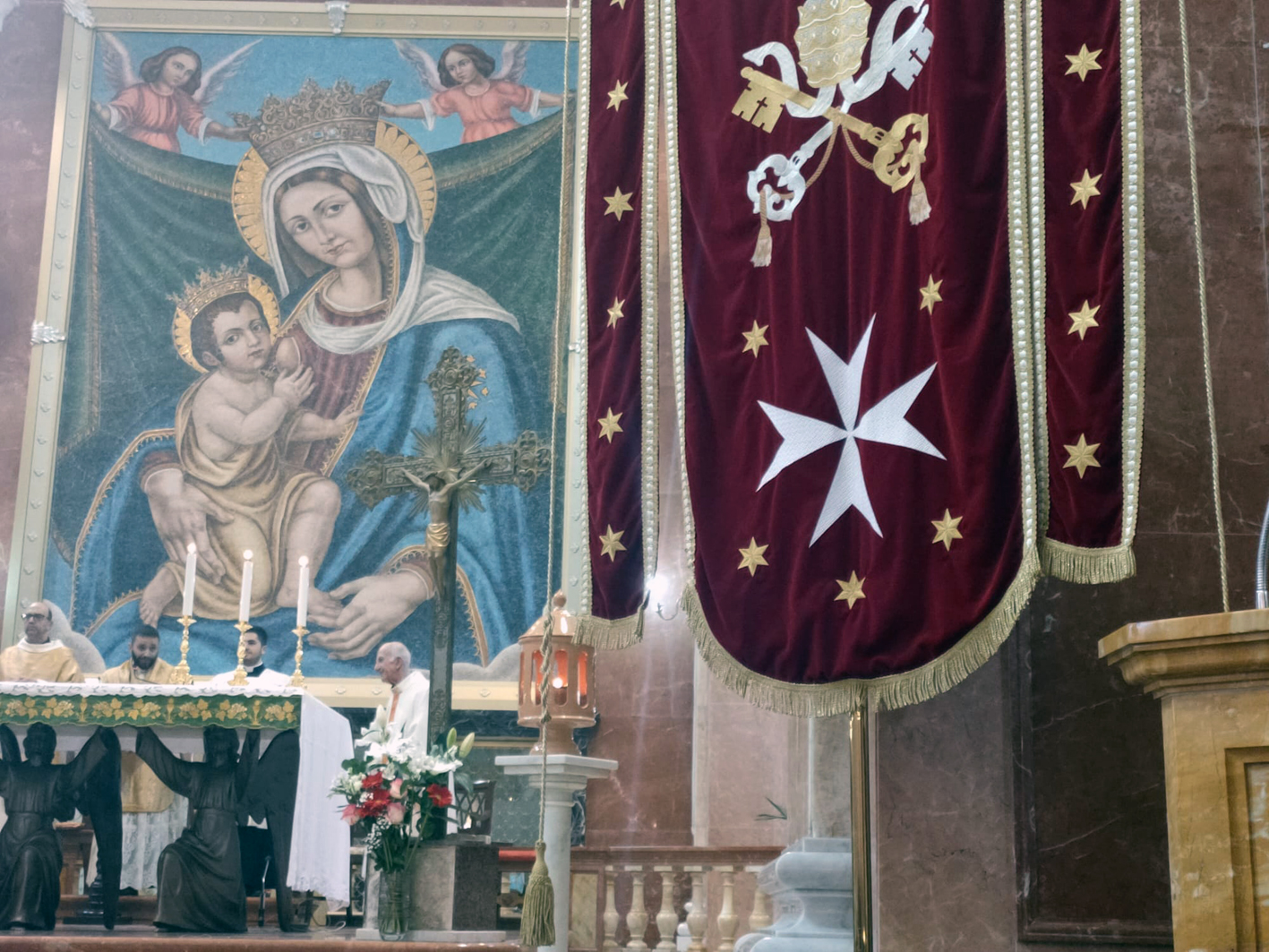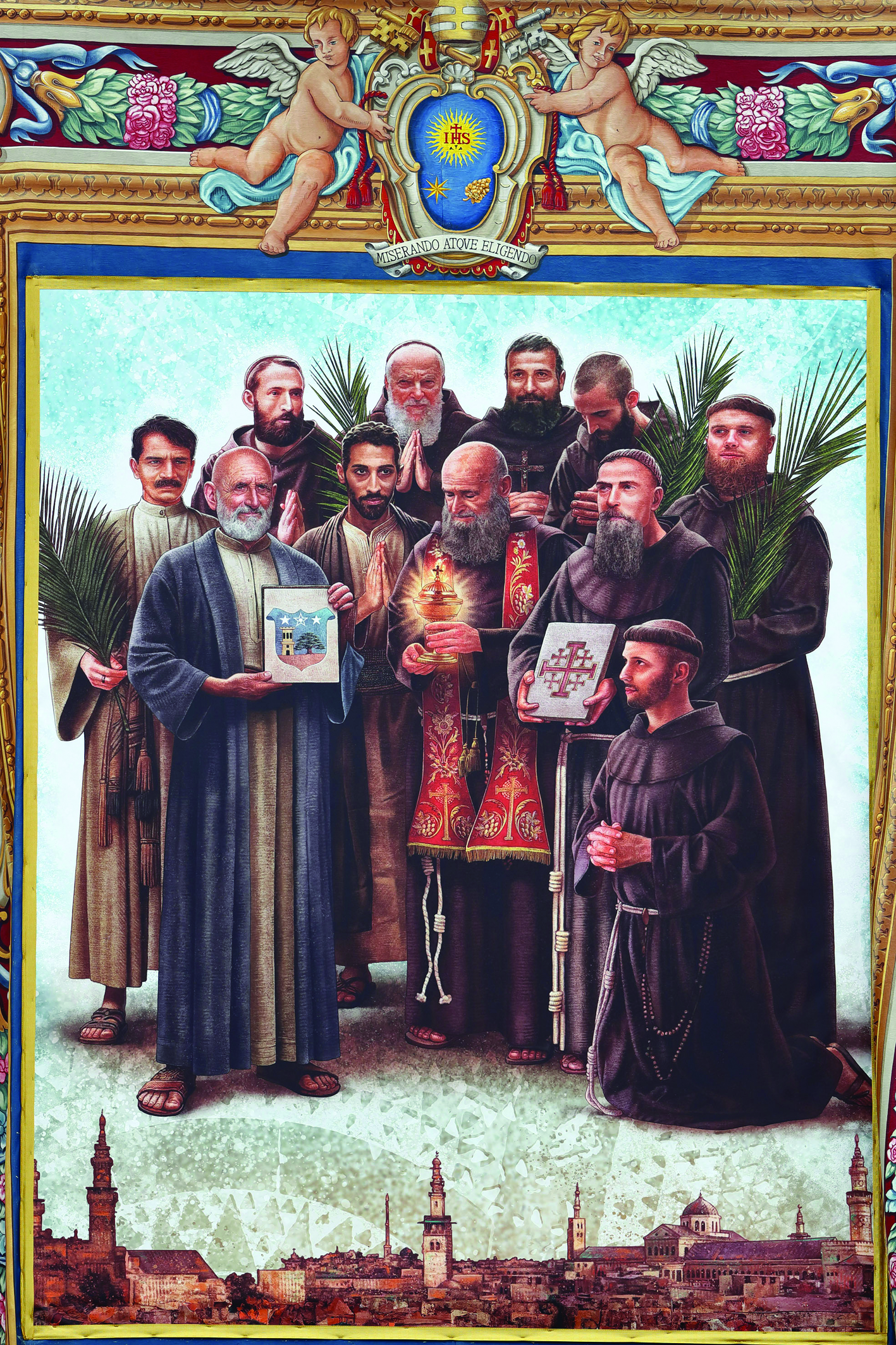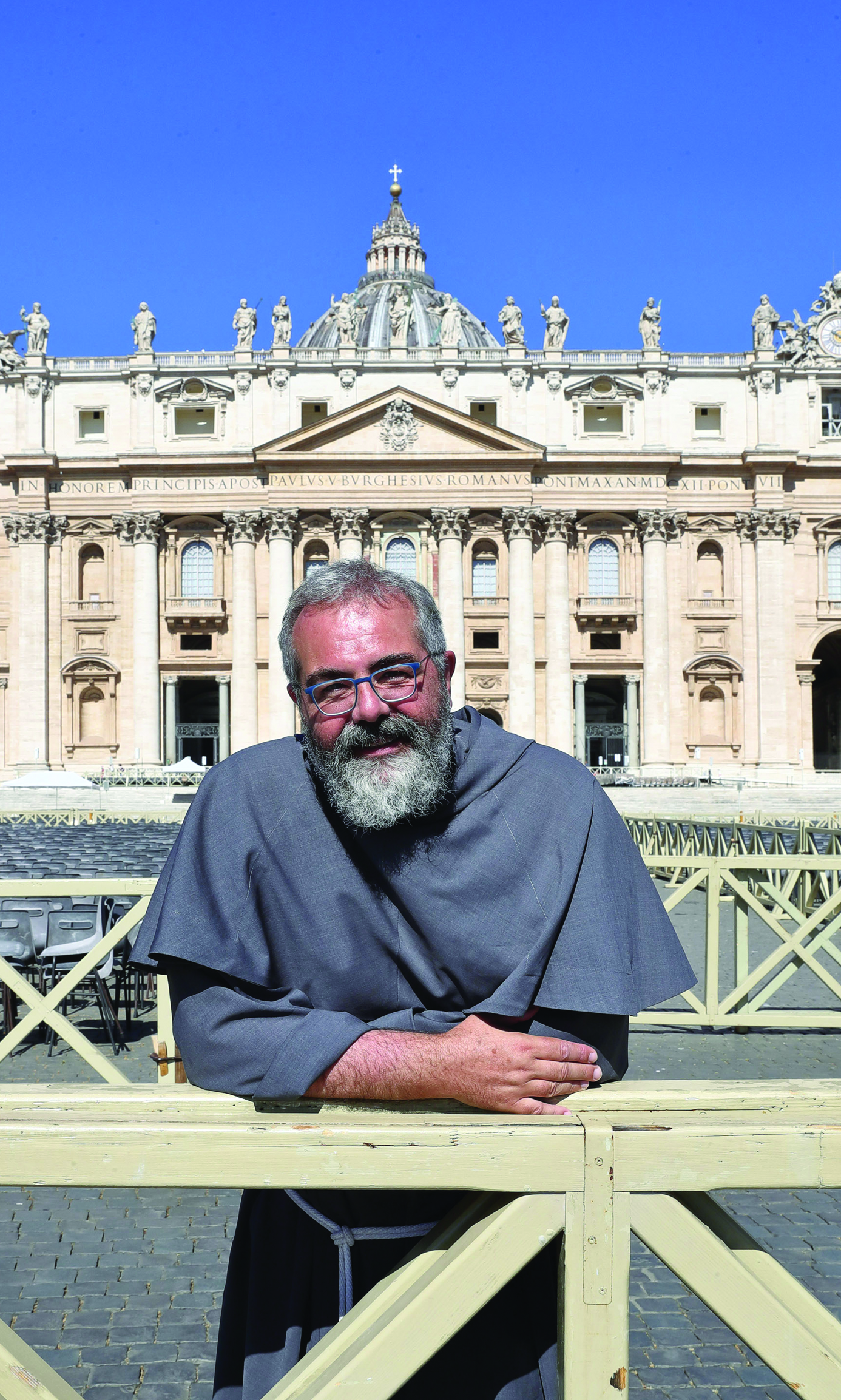NOMINATIONS AND MEETINGS
Pope names five women to International Theological Commission
Pope Francis, who has said the Catholic Church has “not yet come up with a profound theology of womanhood,” named five women, a record number, to the International Theological Commission. One of the women is U.S. Mercy Sister Prudence Allen, former chair of the philosophy department at St. John Vianney Theological Seminary in Denver, and now a member of the chaplaincy team at Lancaster University, England.
On September 23, the Vatican released the names of 30 theologians who will serve a five-year term on the commission. Women have served on the panel since 2004, but, until now, there have never been more than two. The five women appointees also include Australian Tracey Rowland, dean of the John Paul II Institute for Marriage and Family in Melbourne, Australia, who is a prominent authority on the theology of Pope Benedict XVI; and Moira Mary McQueen, a Canadian-British citizen who serves as director of the Canadian Catholic Bioethics Institute at the University of St. Michael’s College in the University of Toronto. In addition to Sister Allen, the commission will include one other American: Capuchin Franciscan Father Thomas G. Weinandy, former executive director of the U.S. Conference of Catholic Bishops Secretariat of Doctrine.
—CNS
Vatican official calls for shared responsibility in protecting planet
A sense of “shared responsibility to protect our planet and the human family” must influence how nations react to the reality of climate change, the Vatican’s Secretary of State told the United Nations September 23.
In a statement during the UN Climate Summit, Cardinal Pietro Parolin observed that “warming of the climate system is unequivocal. It is a very serious problem which… has grave consequences for the most vulnerable sectors of society and, clearly, for future generations.”
Parolin noted that from the beginning of his pontificate, Pope Francis has emphasized the importance of protecting the environment, “which all too often, instead of using for the good, we exploit greedily, to one another’s detriment,” quoting the Pope’s March 2013 address to the diplomatic corps accredited to the Holy See.
Prudence must prevail in the face of the risks and costs of the increase of greenhouse gases caused by human activity, Cardinal Parolin said.
This requires political and economic commitments by the nations of the world, including the Holy See, he added.
He again quoted Pope Francis, from a general audience in May, when he said a risk lies in “considering ourselves the masters of creation.
“Creation is not some possession that we can lord over for our own pleasure, nor, even less, is it the property of only some people, the few.
“Creation is a gift, it is the marvelous gift that God has given us so that we will take care of it and harness it for the benefit of all, always with great respect and gratitude.”
Cardinal Parolin said that over the decades since the U.N. Framework Convention on Climate Change in 1992, there has been increasing awareness that the entire international community is interdependent. “There is no room for the globalization of indifference, the economy of exclusion or the throwaway culture so often denounced by Pope Francis,” he said.
A collective response, “based on a culture of solidarity, encounter and dialogue,” should be the basis of interactions of every family, including the human family, he said.
—CNS
Traditionalist leader meets with Vatican to discuss reconciliation
The leader of a breakaway group of traditionalist Catholics met with Vatican officials Sept. 23 for the latest in a long series of reconciliation talks. Bishop Bernard Fellay, superior general of the Society of St. Pius X, met for two hours with Cardinal Gerhard L. MuEller, prefect of the Congregation for the Doctrine of the Faith, the Vatican said in a statement.
“Various problems of a doctrinal and canonical nature were examined, and it was decided to proceed gradually and over a reasonable period of time in order to overcome difficulties and with a view to the envisioned full reconciliation,” the Vatican statement said. The SSPX effectively broke with Rome in 1988, when its founder, the late Archbishop Marcel Lefebvre, consecrated four bishops without the permission of St. John Paul II in a protest against modernizing changes that followed the Second Vatican Council of 1962-65. In 2012, after years of on-again-off-again talks, the Vatican announced that the traditionalists had been formally offered terms of reconciliation, but the SSPX did not accept, citing unresolved “doctrinal difficulties,” including the form of the Mass introduced by Pope Paul VI.
—CNS
Pope receives Argentina’s Kirchner
Pope Francis in mid-September received the President of Argentina, Cristina Fernandez de Kirchner. The meeting began in the lobby of the Santa Marta guesthouse, and lasted roughly a quarter-hour.
After the private colloquy, Pope Francis greeted the other members of the presidential delegation. President Kirchner brought the Holy Father an image of Mary Untier of Knots, one of the devotional titles of which Pope Francis is most fond, and one under which he promoted devotion to Our Lady in Argentina. Following their meeting, the Pope and the President proceeded to lunch together at the Casa Santa Marta.
Philadelphia meeting, synods will be part of global debate on families
The World Meeting of Families in Philadelphia in September 2015 will serve as a forum for debating issues on the agenda for the World Synod of Bishops at the Vatican the following month, said the two archbishops responsible for planning the Philadelphia event.
At a September 16 Vatican briefing, Archbishop Vincenzo Paglia, president of the Pontifical Council for the Family, described the world meeting as one of several related events to follow the October 2014 Extraordinary Synod of Bishops on the Family, which will prepare an agenda for the worldwide synod one year later.
Such events, including a January 2015 meeting in Rome with family and pro-life groups, will enable a debate on the synod’s agenda “at the international, global level,” Archbishop Paglia said. “It is important that this text not remain an abstract text reserved to some specialists.”
“In this way, the debate at the ordinary synod will be enriched,” the archbishop said.
“We’re bringing up all the issues that would have appeared in the preparation documents for the synod as part of our reflection,” said Archbishop Charles Chaput of Philadelphia, regarding plans for the world meeting. “I can’t imagine that any of the presenters won’t pay close attention to what’s happening” in Rome.
Archbishop Chaput said as many as 15,000 people are expected to take part in the meeting, whose program will be kept flexible to allow for topics that emerge from the bishops’ discussions at the Vatican this October.
Pope Francis is widely expected to attend the Philadelphia event, although Archbishop Chaput noted that an official announcement in that regard might not come until well into 2015. If the Pope does attend, he said, a “papal Mass could easily draw more than a million people.”
The World Synod of Bishops will meet at the Vatican October 4-25, 2015, to continue the discussion on pastoral approaches to the challenges facing families.
—Francis X. Rocca (CNS)
CURIOSITY
Vatican astronomer: “Just a matter of time until life found in universe”
Jesuit Brother Guy Consolmagno, the new president of the Vatican Observatory Foundation, has no doubt that life exists elsewhere in the universe and that when humanity discovers it, the news will come as no big surprise. He suggested that the likely discovery — whether next month or a millennium from now — will be received much the way that news of planets orbiting far-off stars has filtered in since the 1990s.
“The general public is going to be, ‘Oh, I knew that. I knew it was going to be there,’” Brother Consolmagno said prior to a presentation at a NASA/Library of Congress symposium on preparing for the discovery of life in the universe September 18-19.
While the discovery of life elsewhere will not prove nor disprove the existence of God, Brother Consolmagno expects that it will open the door to ponder what form salvation history may take in other intelligent societies.
The longtime Vatican astronomer addresses the same question and a series of others that cross the threshold between science and religion in a new book, Would You Baptize an Extraterrestrial?… and Other Strange Questions From the Inbox at the Vatican Observatory, set to be published in October. Co-written by Jesuit Father Paul Mueller, another Vatican Observatory astronomer, the book uses a series of easy-to-read conversations between the two in an effort to explain how the Church supports science and to provide insight into how religion works. The book addresses questions about the Big Bang theory on the origins of the universe and the creation story in the Book of Genesis; the circumstances surrounding the star of Bethlehem; the end of the world; and the Church’s inquisition of Galileo Galilei as he wrote about a sun-centered solar system.
—Dennis Sadowski (CNS)
ENCOUNTERS
A CONGRESS ON EVANGELII GAUDIUM
Evangelii Gaudium, Pope Francis’ apostolic exhortation, was released almost one year ago. In order to implement the document, dozens of experts met at the Vatican to look for ways to put it into practice.
One of these experts is the Argentinian Archbishop Victor Manuel Fernández, rector of the Catholic University of Argentina, who helped in drafting it. Interviewed by Rome Reports, he said: “The truth is, as the Pope says, Evangelii Gaudium is a programmatic document. It also calls for boldness, enthusiasm, creativity. But I have the impression that, one year later, we have not taken it into account.”
Sharing joy, going out to the peripheries, promoting a culture of encounter and encouraging an attitude in the Church of going out are among the key points of the document. For Fernández, a missionary Church that is not afraid of being close to those in the most need is crucial: “The Church cannot act if it does not come out of itself, if it does not break its old habits, if it doesn’t go out to search for those who are there, who are not attracted to the message of Christ, to those who do not want to know anything because they have other plans in life.” The Pontifical Council for the New Evangelization organized this Congress which concluded with an audience with Pope Francis. He reminded them that while pastoral initiatives are good, they must not forget to pay attention to the people.
—ITV staff








Facebook Comments